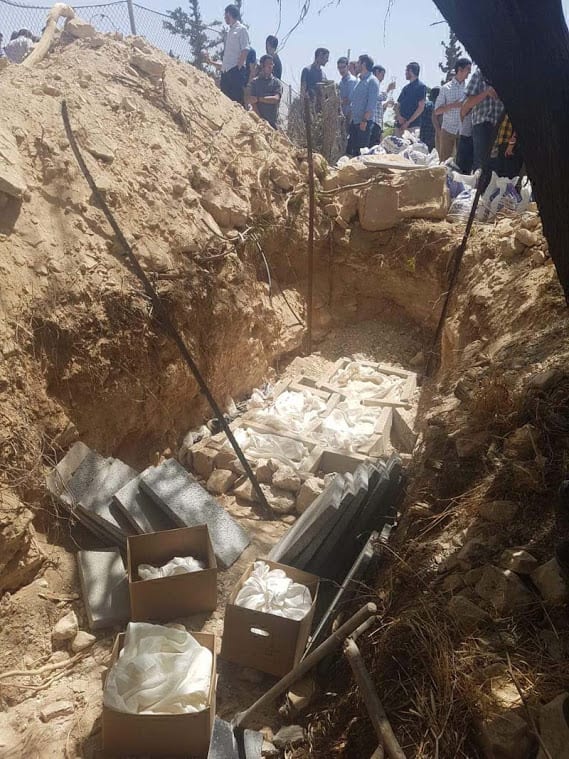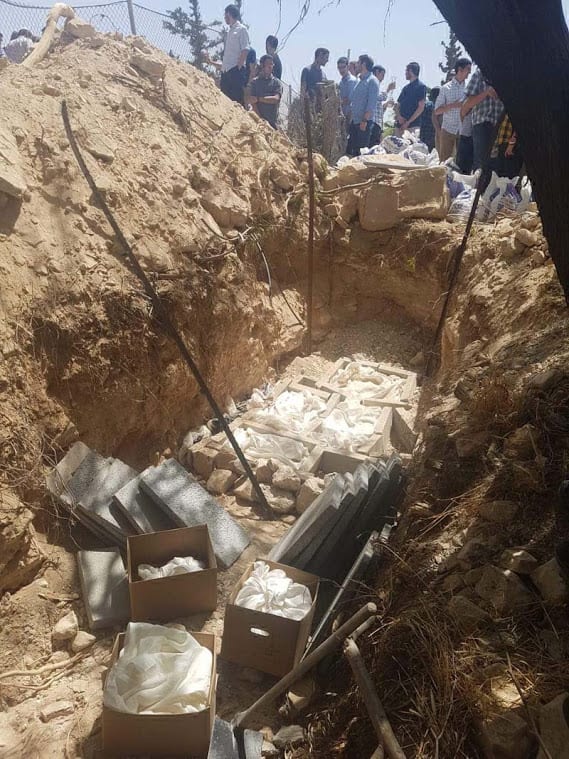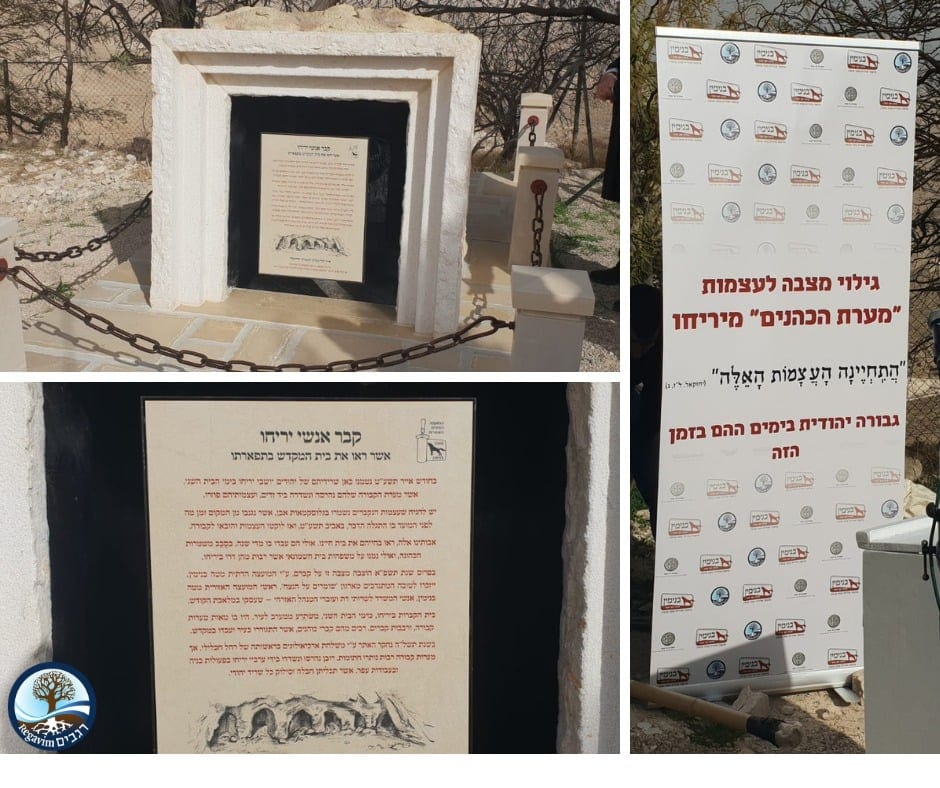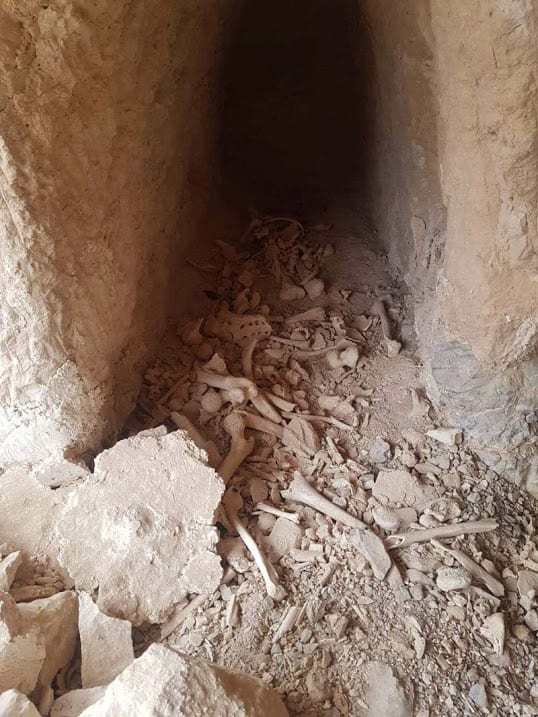
Hasmonean Burial Site Desecrated by “Palestinians”, Bones Receive Kosher Burial
The ancient burial caves on the outskirts of Jericho date back to the Second Temple period and are apparently part of the extensive burial grounds of the Hasmonean palace uncovered at the site. The cave was exposed in the course of landscaping work carried out by local Arab farmers, who rolled tractors over the site to prepare the ground for agricultural work.
Professor Rachel Hachlili of Haifa University’s Zinman Institute of Archaeology, who studied this region, identified these caves as the largest Second Temple-era burial ground in Israel.
Hikers who visited the site were appalled by what they found: Human remains were strewn everywhere on the freshly tilled ground, the catacombs were thoroughly ransacked and looted, and the sarcophagi (burial caskets) that had been resting in the caves for more than 2,500 years had disappeared.
Antiquities theft and destruction of archaeological treasures is rampant; in fact, it has become nearly commonplace throughout Judea and Samaria. In this case, ancient catacombs were wiped out by illegal quarrying despite the constant stream of alerts, warnings and documentation sent to the Regional Commander for Antiquities in the Civil Administration, the body responsible for law enforcement in the area.

Rescued bones being given proper buria -in Kfar Adumim (Photo courtesy Regavim)
In the attached video filmed one year ago, you can see Regavim’s joint efforts with Preserving The Eternal, the Binyamin Regional Council, and other activists from Binyamin, to properly rebury the bones in the Kfar Adumim cemetery.
Last Monday, on the 5th night of Chanukah, a stone-setting ceremony took place at the cemetery. The organizers emphasized that Hanukkah was an auspicious time to commemorate and honor the Jews of Jericho from the days of the Hasmoneans. Many tried, and still try, to break the People of Israel’s resolve and spirit.

Photo courtesy Regavim

Bones scattered in desecrated burial cave near Jericho. (Photo courtesy Regavim)
“To those who seek our destruction, and to those who seek to weaken the Jewish people’s special connection to the Land of Israel, we say: you shall not succeed!” Regavim said in a statement. “We are here to stay. We shall continue to stand up for Jewish individual and national rights. We shall battle to preserve and protect our wonderful land for the sake of all its residents.”
Israel in the News